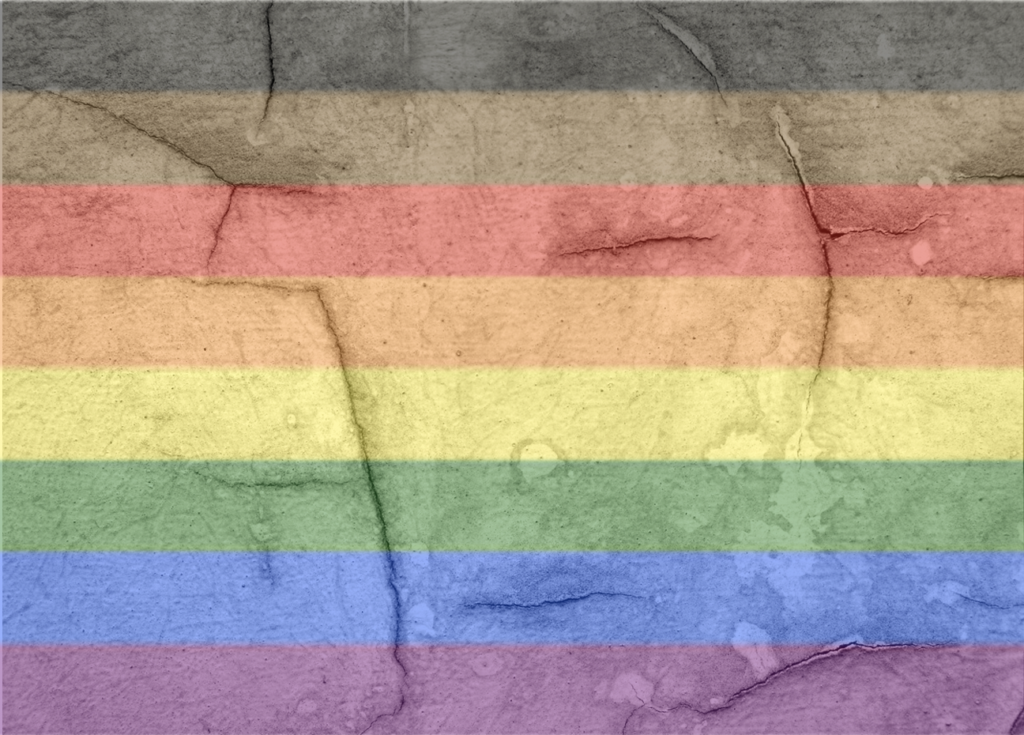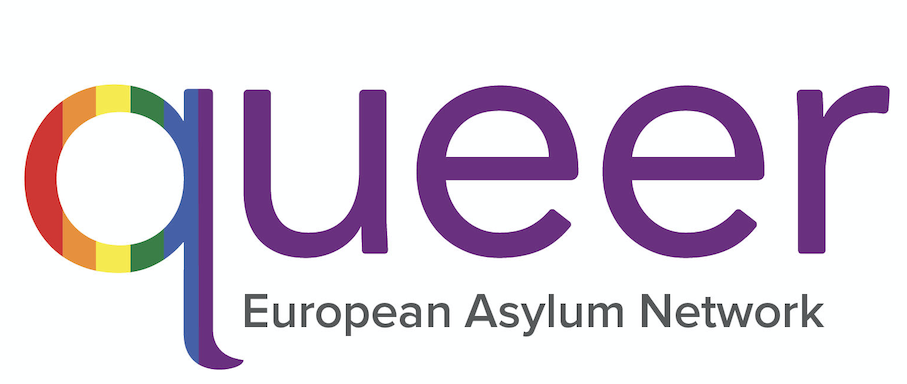
13.11.2020 – ONLINE SYMPOSIUM
About
This online symposium foregrounded trans, bisexual, intersex, lesbian and non-binary migrants and refugees’ experiences of asylum, challenging the often cis-homocentric and Eurocentric perspectives and views that continue to dominate queer asylum practice and policies. The symposium firstly, focused on the recognition of gender-based violence in the asylum claims of lesbian, bisexual, inter and trans persons and secondly, on the violence protection and prevention against LGBTQI+ people on the move in their country of arrival. In so doing, the panels asked what we can learn from these experiences and how they contribute to a more inclusive asylum policy – particularly with an eye on the New Common European Asylum System. This symposium was concluded by a participatory performance by the human rights theater group ice&fire which approaches the topics around queer asylum, human rights and violence through testimonies.
Panel #1
The Recognition of Violence Against Lesbian, Bisexual, Inter and Trans People within the Common European Asylum System
The first panel of this online symposium discussed the particular experiences of lesbian, intersex and transgender asylum claimants, who are often victims of gender-based violence in their country of origin as well as arrival, against the background of the Istanbul Convention from 2011. What are the particular challenges lesbian, bisexual inter and trans claimants face within the asylum process? How can we understand gender-based violence in SOGI asylum claims? To what extend do we see an implementation of the Istanbul Convention 2011 within the Common European Asylum System? How could we find ways in which to incorporate such more stringently in the context of the New Common European Asylum System?
The panel was preceded by a short welcome note by Dr. Ines Kappert, Director of the Gunda-Werner-Institute for Feminism of the Heinrich-Böll-Stiftung.
Moderation:
Mengia Tschalaer is a Research Fellow at the School of Sociology, Politics, and International Studies at the University of Bristol and at Brunel Law School. Her work examines how Western regimes and ideals of law affect the access to justice of minority groups at the intersection of race, gender, sexuality and religion. She is the co-founder of the Queer European Asylum Network.
Panelists:
Terry Reintke is vice-president of the Greens/EFA group in the European Parliament and the group’s coordinator for the Committee on Civil Liberties, Justice and Home Affairs. She is co-president of the LGBTI Intergroup and founder of the EU-UK Friendship Group. TerryReintke was featured in TIME magazines coverage for Person of the Year 2017 as part of the “Silence Breakers” speaking out against sexual abuse and harassment.
Akram Kubanychbekov is a Senior Advocacy Officer at ILGA-Europe. Akram works on developing and implementing advocacy strategies and policy initiatives aimed at bringing legal, political and social change for LGBTI people across Europe and Central Asia, with a focus on hate crime and speech, asylum and migration, domestic violence, Eastern Partnership countries and Central Asia. Prior to joining ILGA-Europe, Akram worked in the Regional Office of the High Commissioner for Human Rights for Central Asia as a Rule of Law Consultant. Since 2008, Akram is involved in LGBTI activism.
Louise Hooper is an established public law, human rights and migration lawyer. Louise has worked extensively with the Council of Europe as an international expert. This work has involved designing and developing offline and online training on the Istanbul Convention on Combatting Violence against Women and Domestic Violence, conducting baseline country evaluations of compliance with the Istanbul Convention and, most recently writing the guide to ‘Gender based asylum claims and non-refoulement: Articles 60 and 61 of the Istanbul Convention’. She is the appointed international expert to the Drafting committee on Migrant Women of the Gender Equality Commission.
Anna Mrozek (Dr. jur), works as an advisor for the German Federal Family Affairs, Senior Citizens, Women and Youth, in the LGBTI unit since 2019. Previously, she worked as an Assistant Professor at the Chair of Public and Constitutional Law at the University of Leipzig. Her research focused on legal aspects of the supranational border regime of the EU, migration, humanitarian and human rights law and correlations between law, politics and culture.
Julia Serdarov, is an activists in antiracist and queer-feminist movements and worked in different NGOs (Bayerischer Flüchtlingsrat, Interventionsstelle für Opfer Häuslicher Gewalt, LeTRa). She is involved in LGBTI refugee counseling, press work and campaigns as well as lobby work.
Jorge Maria Londoño (they/them) is a non-binary, genderqueer trans activist from Colombia based in Sweden. They were recently elected Co-Chair of TGEU, an umbrella organization for trans organizations and activist in Europe and Central Asia. Aside from their trans activism they are also the Chair of Youth Against Racism in Sweden.
Panel #2
Hate-Motivated Violence Against LGBTIQ * Refugees: Protection Concepts, Advice and Prevention
LGBTQI* refugees and asylum claimants are particularly vulnerable to physical and psychological violence within and outside accommodation centers. How can they find quick help and competent counseling support? What are the possibilities and limitations of concepts addressing hate-motivated violence in Germany? What kinds of safe-housing concepts are there? How can the police and judiciary be better sensitized to recognize and act upon hate-motivated violence against LGBTQI+ persons on the move? What is the scope of action of victim counseling offices? This panel focused on examples of best-practices and develops suggestions on how to better accommodate the particular needs of LGBTQI+ refugees and asylum claimants during the asylum process.
Hassgewalt gegen LSBTIQ+-Geflüchtete: Schutzkonzepte – Beratung – Prävention
LSBTIQ+-Geflüchtete sind in besonderem Maße von Hassgewalt betroffen. Wie können Sie schnelle Hilfe und kompetente Beratung finden? Was sind die Möglichkeiten und Grenzen von Schutzkonzepten für Gemeinschaftsunterkünfte? Welche Modelle für Schutzwohnungen gibt es? Wie können Polizei und Justiz für diese Formen von Hassgewalt sensibilisiert werden? Was sind die Handlungsspielräume von Opferberatungsstellen? Das Panel diskutierte Best-practice-Beispiele und Verbesserungsvorschläge für die Unterbringung von LSBTIQ+-Geflüchteten während des Asylverfahrens und danach.
Moderation:
Lilith Raza is working for the rights of LGBTI refugees and asylum seekers in Germany since 2015. Since November 2017 she is working for the German wide LSVD e.V Project “Queers Refugees Deutschland”.
Panelists:
Knud Wechterstein is a founding member of the “Rainbow Refugees Frankfurt Verein” established in October 2015 and was a member of its board from 2016 – 2019. Knud is currently the coordinator of „Rainbow Refugees Support“ at the AIDS-Hilfe, Frankfurt.
Alva Träbert is a feminist sociologist and gender historian and counselor at Rosa Strippe Bochum. She is currently the head of a state-wide training program in North Rhine-Westphalia supporting refugee camp management and staff in implementing violence protection measures for queer and trans occupants.
Ina Wolf is a certified inclusion manager and works with young LGBTQI+ refugees and migrants in Germany. She is the co-founder of Rainbow Refugees Cologne and of Sofra Cologne. She collaborates with the LSVD on the queer refugees Deutschland project supporting the documentation of cases of violence against LGBTQI+ refugees as well as the development of violence protection concepts in shelters in Germany.
Panel #3
Human Rights and Queer Asylum Performance: This is Who I am – a Dialogue
ONLINE I 13.30-15.00 CET
In collaboration with the theatre company ice&fire and its production ‘This Is Who I Am’, this 1.5 hour-long session offered an interactive experience in exploring human rights stories relating to queer asylum through performance art. The virtual spoken word performance features a reading of first-hand accounts of LGBTQI+ people’s experiences of seeking refuge in Europe and going through the asylum process.
Funding
This symposium received support from the Gunda-Werner-Institute, the Economic and Social Research Council UK, the European Coalition of Cities Against Racism, Drei Linden Stiftung, the City of Heidelberg funded by the federal program „Demokratie leben!“ of the Federal Ministry for Family Affairs, Senior Citizens, Women and Youth, and the Federal Foundation Magnus Hirschfeld.
